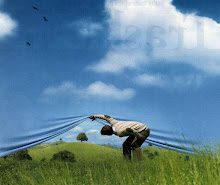–noun
a tendency to think favorably of something in particular; partiality; preference: a predilection for Bach.
~~~~~~~
I want to write this down so I won't forget it. As duly noted in class (and clearer than I had considered it before) even the sliding scale of sentience does not allot us a moral excuse for the difference in treatment between nonhumans and humans. Even to be generous, as we did in class, I would use dolphins as a 7 (actually that might not be so generous) on a scale from 0-10, 0 being a rock and 10 being an adult human, a 6-year-old child would rank somewhere around 3-5, putting us in a circular dilemma.
To stick to the notion that our cognizance allots us extra rights demands that those rights not be recognized or respected until a human is full-grown, and this is an obvious moral mistake (because we tend to, for good reason, engage our sympathies regarding our own first, and use it as a model). From every direction I have tried, thus far, to ascertain some crucial, determinate reason that nonhumans and humans are inherently different, I have found nothing. We are another, more cognizant, animal. And morally, as I've said several times now, cognizance allots less rights, not more.
What needs to be changed is ideology, I think. But it requires something that people, on a large scale at least, have never been able to do: accept that there are no morally acceptable reasons why you or anyone you love are not animals. Even to accept that, biologically, we are most certainly animals would be a step in the right direction, but that's not enough. Most people accept that premise superficially, at least.
However, to understand it substantially has the ability to immediately infer we are not the center of the universe. However dated those particular words have actually become, they remain a viable element of our species, perhaps from merely the genetic coding that instills in us an instinct that we, as a tribe/species, are separate and distinct, or even learned from the institutions propagating this notion since we could speak, but we must move away from it.
Gaining perspective has been, for me at least, the best way to learn about things more broadly and more deeply than ever before. Look at the picture to the above right, the one of space. Why do we still think we're so important to the nature of everything? That's a rhetorical question of course, books could be filled answering it, but the simple answer is: we're not. It is our preconceptions that have delighted us, deceived us, and harmed us (and anything relevant around us).
We can revel in our strengths while recognizing our weaknesses. We can change our ways once we recognize they are flawed with dignity rather than shame. We can see ourselves as animals on a speck of dust and still build our own, individual, beautiful, influential importance. We can still be important seeing the truth of the universe. Just because it is not as important as we presupposed is no excuse to continue believing otherwise.
Friday, September 21, 2007
Subscribe to:
Post Comments (Atom)

3 comments:
Neither must/should we attempt to inflate our own self-importance by downgrading or denying the importance of others (see my "quote of the week"). I share your predilection for Bach, by the way.
Haha, that was just the example used on the site, but I do indeed enjoy Bach myself, so it all works out. Debussy's my favorite though.
I'm actually a fan of jazz; but an occasional moment of classical music is just fine.
Post a Comment